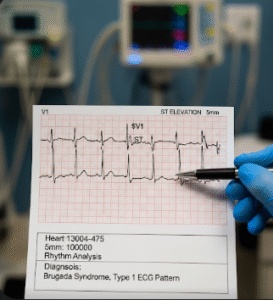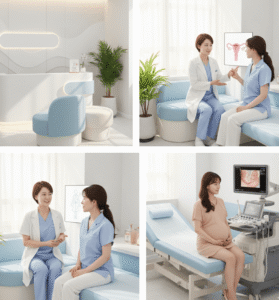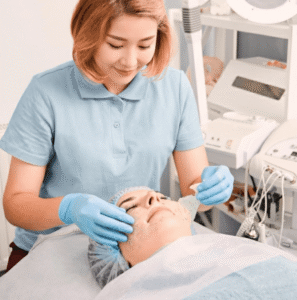Overview
Peptic Ulcer Disease (PUD) is a condition in which open sores (ulcers) develop in the lining of the stomach, the upper part of the small intestine (duodenum), or the esophagus. These ulcers result from the breakdown of the protective mucosal layer due to excess stomach acid, infection, or certain medications. Peptic ulcers can cause abdominal pain, indigestion, and serious complications like bleeding or perforation if untreated.
What is Peptic Ulcer Disease?
Peptic Ulcer Disease refers to ulcers in the gastrointestinal tract exposed to stomach acid and digestive enzymes. It includes:
- Gastric ulcers – ulcers in the stomach lining
- Duodenal ulcers – ulcers in the first part of the small intestine
- Esophageal ulcers – ulcers in the lower part of the esophagus (less common)
These ulcers occur when the balance between protective mucus and digestive acid is disrupted, leading to tissue damage.
Symptoms
Symptoms of peptic ulcer disease can vary in intensity and duration. Common symptoms include:
- Burning or gnawing abdominal pain, especially on an empty stomach
- Bloating or feeling full quickly after eating
- Nausea or vomiting
- Loss of appetite and weight loss
- Dark, tarry stools (a sign of internal bleeding)
- Vomiting blood (hematemesis) in severe cases
- Pain that improves or worsens with eating, depending on ulcer location
Duodenal ulcer pain usually improves after eating, while gastric ulcer pain may worsen.
Causes
The primary causes of Peptic Ulcer Disease include:
- Helicobacter pylori (H. pylori) infection – damages the stomach’s protective lining
- Regular use of NSAIDs (non-steroidal anti-inflammatory drugs) like aspirin, ibuprofen, or naproxen
- Excess stomach acid production due to stress, smoking, or genetics
- Zollinger-Ellison syndrome – a rare condition that causes excessive acid secretion
- Alcohol and smoking – can worsen mucosal damage
- Certain medications, such as corticosteroids, when combined with NSAIDs
Risk Factors
Several factors increase the risk of developing peptic ulcers:
- Frequent NSAID use
- Chronic H. pylori infection
- Smoking or heavy alcohol consumption
- Older age (greater than 60 years)
- Family history of ulcers
- Untreated stress or anxiety (may worsen symptoms)
- Other health conditions, like liver or kidney disease
Complications
If left untreated, Peptic Ulcer Disease can lead to serious complications:
- Gastrointestinal bleeding – can cause anemia or be life-threatening
- Perforation – a hole in the stomach or duodenal wall leading to peritonitis
- Gastric outlet obstruction – swelling or scarring blocks food from passing through the stomach
- Increased risk of gastric cancer (with chronic H. pylori infection)
- Recurrent ulcers due to inadequate treatment or lifestyle factors
Prompt diagnosis and treatment can significantly reduce the risk of complications.
Prevention
Peptic ulcer disease can often be prevented or managed through lifestyle and medical strategies:
- Limit or avoid NSAIDs; use alternatives when possible
- Take NSAIDs with food or a protective agent (e.g., proton pump inhibitor)
- Test and treat H. pylori infections
- Quit smoking and reduce alcohol intake
- Manage stress with relaxation techniques
- Avoid spicy or irritating foods if they trigger symptoms
- Regular check-ups if you have a history of ulcers
Vaccination against H. pylori is under research but not yet available.
Treatment Options in Korea
South Korea offers world-class care for Peptic Ulcer Disease, including diagnostics, eradication therapy, and surgical intervention if necessary.
Diagnosis:
- Upper endoscopy (EGD): Direct visualization and biopsy of ulcers
- H. pylori testing: Via breath test, stool antigen, or biopsy
- Blood tests: To detect anemia or infection
- Imaging: In cases of complications like perforation
Medical Treatment:
- Proton Pump Inhibitors (PPIs): Reduce stomach acid (e.g., omeprazole, esomeprazole)
- H. pylori eradication therapy: Combination of antibiotics and PPIs for 10–14 days
- Antacids or H2 blockers: For symptom relief
- Mucosal protectants: (e.g., sucralfate) to coat and protect ulcers
- Lifestyle changes: Diet, stress reduction, and avoiding alcohol/smoking
Surgical Options:
- Rarely needed, but may include vagotomy, pyloroplasty, or partial gastrectomy in cases of perforation, obstruction, or refractory ulcers.
Where to Get Treated in Korea:
Top hospitals such as Asan Medical Center, Seoul National University Hospital, Samsung Medical Center, and Yonsei Severance Hospital offer endoscopy services, gastrointestinal surgery, and bilingual support for international patients.













